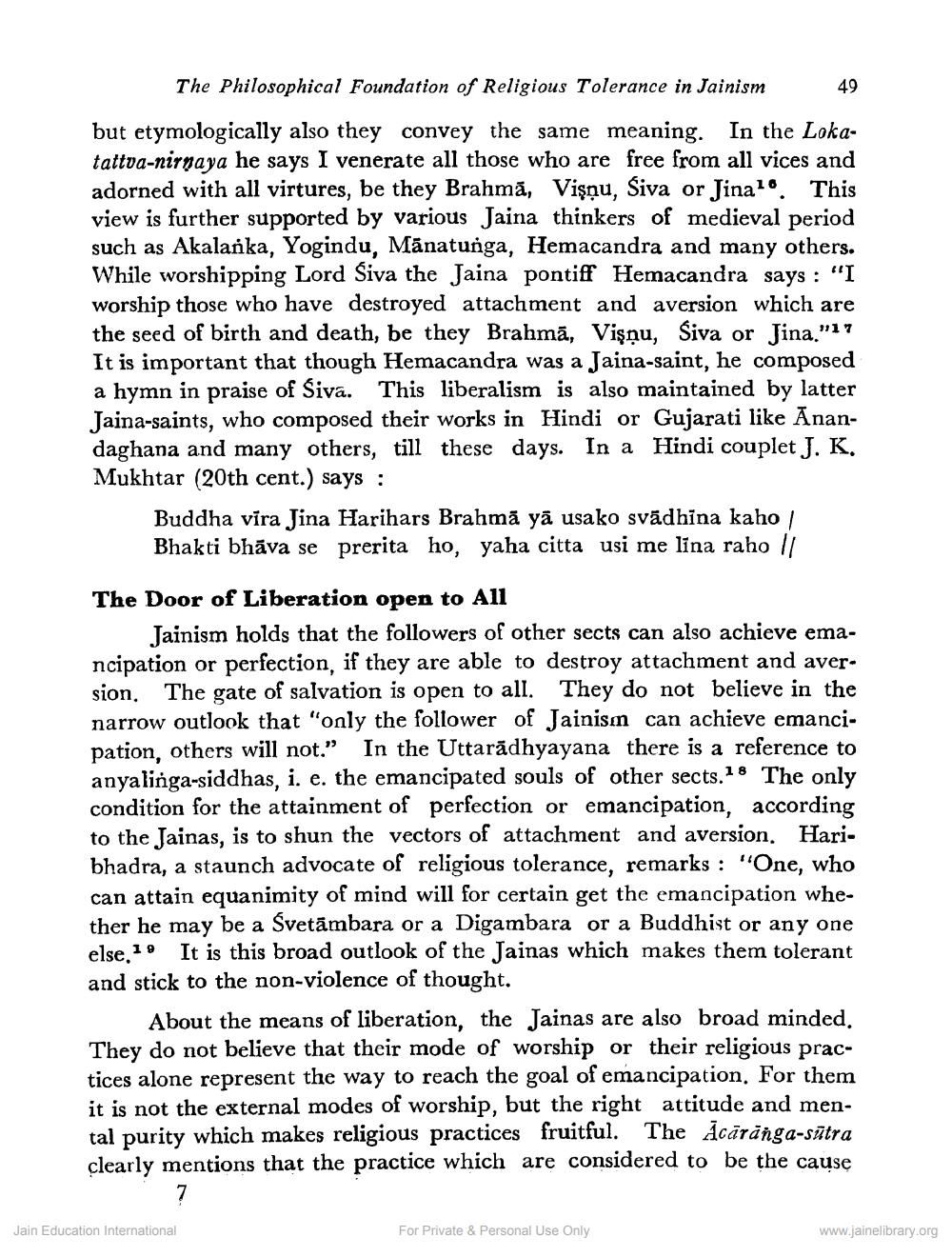________________
The Philosophical Foundation of Religious Tolerance in Jainism
49
but etymologically also they convey the same meaning. In the Lokatattva-nirnaya he says I venerate all those who are free from all vices and adorned with all virtures, be they Brahmă, Vişnu. Siva or Jina 16 This view is further supported by various Jaina thinkers of medieval period such as Akalanka, Yogindu, Mānatunga, Hemacandra and many others. While worshipping Lord Siva the Jaina pontiff Hemacandra says : "I worship those who have destroyed attachment and aversion which are the seed of birth and death, be they Brahmā, Vişņu, Siva or Jina."i? It is important that though Hemacandra was a Jaina-saint, he composed a hymn in praise of Siva. This liberalism is also maintained by latter Jaina-saints, who composed their works in Hindi or Gujarati like Anan
a and many others, till these days. In a Hindi couplet J. K. Mukhtar (20th cent.) says:
Buddha vira Jina Harihars Brahmã yā usako svadhina kaho | Bhakti bhāva se prerita ho, yaha citta usi me lina raho ||
The Door of Liberation open to All
Jainism holds that the followers of other sects can also achieve emancipation or perfection if they are able to destroy attachment and aversion. The gate of salvation is open to all. They do not believe in the narrow outlook that "only the follower of Jainism can achieve emancipation, others will not.” In the Uttarādhyayana there is a reference to anyalinga-siddhas, i. e. the emancipated souls of other sects. 18 The only condition for the attainment of perfection or emancipation, according to the Jainas, is to shun the vectors of attachment and aversion. Haribhadra, a staunch advocate of religious tolerance, remarks : "One, who can attain equanimity of mind will for certain get the emancipation whether he may be a Svetāmbara or a Digambara or a Buddhist or any one else. 19 It is this broad outlook of the Jainas which makes them tolerant and stick to the non-violence of thought.
About the means of liberation, the Jainas are also broad minded. They do not believe that their mode of worship or their religious practices alone represent the way to reach the goal of emancipation. For them it is not the external modes of worship, but the right attitude and mental purity which makes religious practices fruitful. The Acāranga-sūtra clearly mentions that the practice which are considered to be the cause
Jain Education International
For Private & Personal Use Only
www.jainelibrary.org




